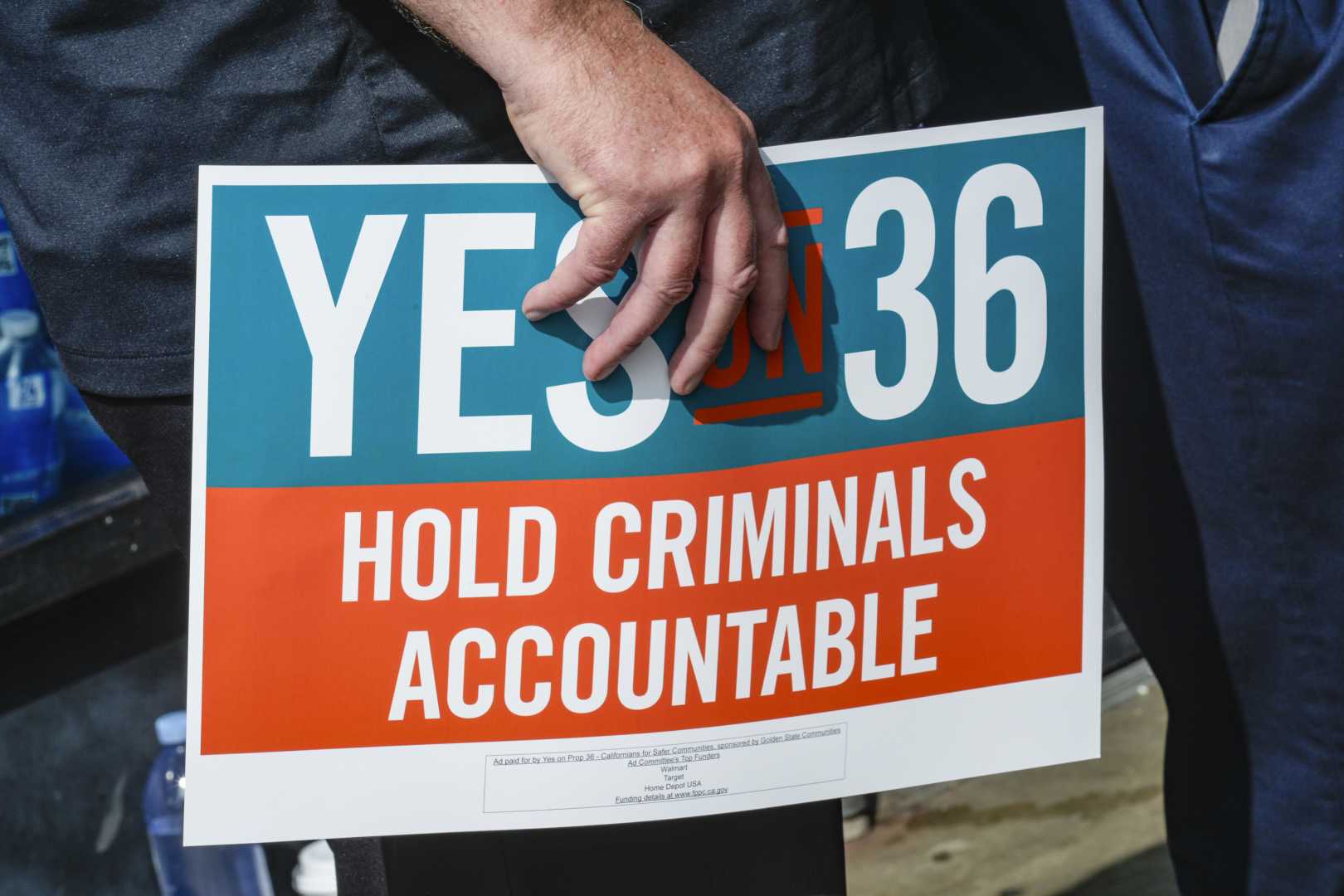Politics
California Voters Strongly Support Proposition 36 to Increase Penalties for Drug and Theft Crimes

California voters are poised to pass Proposition 36, a ballot measure that aims to increase penalties for certain drug and theft crimes, according to recent polling data. A new poll from the Public Policy Institute of California found that 73% of likely voters support Proposition 36, with only 25% opposed and 2% undecided.
The measure, also known as The Homeless, Drug Addiction and Theft Reduction Act, has garnered significant support across various political affiliations and regions. It has the backing of 86% of Republicans, 72% of independents, and 67% of Democrats. Even typically liberal areas like Los Angeles and the San Francisco Bay Area show strong support, with 71% and 73% approval rates, respectively.
Supporters of Proposition 36, including mayors Matt Mahan of San Jose and London Breed of San Francisco, argue that the measure is necessary to address the rise in retail theft and drug-related crimes. They contend that Proposition 36 will impose needed accountability by making a third conviction for certain theft crimes a felony, rather than a misdemeanor. This change is expected to incentivize law enforcement to make more arrests and deter repeat offenders.
The initiative is a response to the perceived shortcomings of Proposition 47, which was passed in 2014 and reduced many theft and drug felonies to misdemeanors. Critics of Proposition 47 argue that it led to an increase in crime rates, particularly in retail theft, due to the lack of deterrents for repeat offenders. Proposition 36 aims to reverse some of these changes by increasing penalties and creating a treatment-focused court process for some drug possession crimes.
Despite its broad support, Proposition 36 faces opposition from some prominent Democrats, including California Governor Gavin Newsom. Newsom has criticized the measure as overly punitive and unfunded, arguing that it would lead to mass incarceration without providing adequate treatment facilities. Vice President Kamala Harris, a registered California voter, has also declined to take a position on the measure, stating she has not yet read through the entire ballot.
The debate over Proposition 36 reflects a broader discussion on how to address crime and addiction in California. While supporters believe stiffer penalties are necessary, opponents argue that the focus should be on treatment and addressing the root causes of crime rather than increasing incarceration rates.












